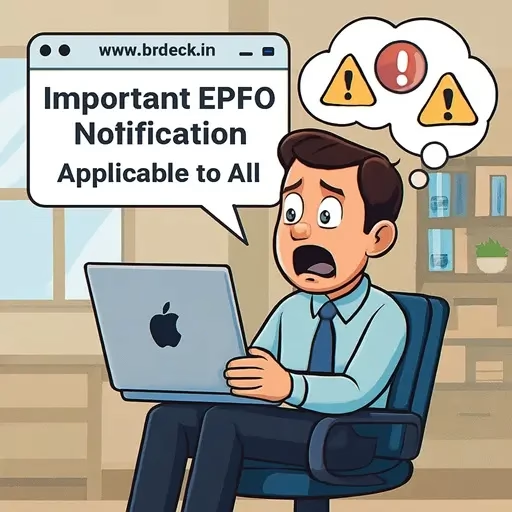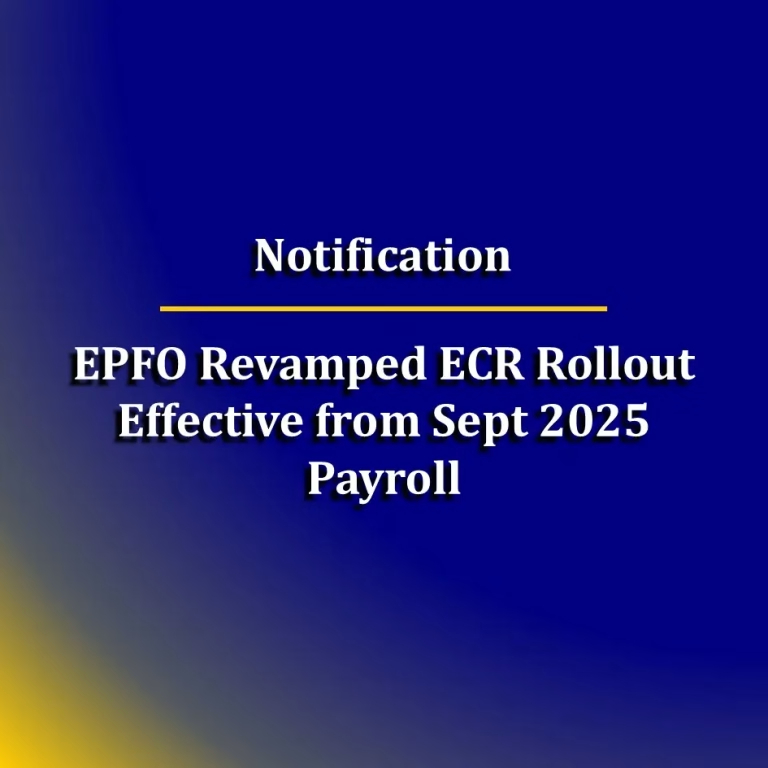Introduction to EPFO
The Employees’ Provident Fund Organization (EPFO) is a statutory entity established by the Government of India in 1952. It operates under the Ministry of Labour and Employment and serves as the nation’s largest social security body. The primary objective of EPFO is to promote savings among employees, ensuring financial security for retirement and other contingencies.
Budget 2024: New Incentives for EPFO Contributions
The 2024 budget introduced an employment-linked incentive scheme aimed at encouraging first-time workers. Under this scheme, employees entering formal employment for the first time will receive direct benefit transfers equivalent to one month’s salary, capped at ₹15,000, in three installments. Eligibility is restricted to individuals earning up to ₹1 lakh monthly, potentially benefiting over 2.1 crore young individuals.
Additionally, the scheme provides incentives to both employees and employers for EPFO contributions during the initial four years of employment. Employers will receive reimbursements of up to ₹3,000 per month for two years for every new hire, with an overarching goal of creating 50 lakh jobs.
For any assistance in
HRMS, Payroll & Compliance Outsourcing, Tax Management or S&E Registration, do contact us.
We provide PAN India service.
Click here to get the Lowest QuotesApplicability and Evolution of EPF
The Constitution of India, through its Directive Principles of State Policy, mandates provisions for employment, education, and public assistance in cases such as old age, sickness, and unemployment. In alignment with this directive, the Employees’ Provident Funds (EPF) Ordinance was introduced in 1951, later replaced by the EPF Funds Act of 1952. Currently governed by the Employees’ Provident Funds & Miscellaneous Provisions Act, 1952, the scheme ensures financial security for employees across India, except Jammu and Kashmir.
EPFO Structure and Administration
The EPFO functions under a tri-partite board known as the Central Board of Trustees (CBT), which includes representatives from the Central and State Governments, employers, and employees. The Ministry of Labour and Employment oversees the board. The CBT manages three key schemes:
- Employees’ Provident Fund Scheme, 1952 (EPF)
- Employees’ Pension Scheme, 1995 (EPS)
- Employees’ Deposit Linked Insurance Scheme, 1976 (EDLI)
Key Functions of EPFO
The EPFO’s primary responsibilities include:
- Enforcing compliance with the EPF Act across India.
- Maintaining individual accounts for members.
- Facilitating claims settlement.
- Managing investments of collected funds.
- Ensuring timely pension payments.
- Updating member records.
EPFO also implements bilateral social security agreements with other countries and continues to enhance its services using IT-enabled solutions.
Benefits of the EPF Scheme
The EPF scheme provides several advantages, such as:
- Retirement Savings: Encourages long-term financial planning.
- Systematic Deductions: Monthly salary deductions simplify savings.
- Emergency Support: Offers financial assistance during unforeseen events.
- Convenient Access: Simplified online services for claims, withdrawals, and transfers.
Recent Changes in EPFO Regulations
Aadhaar Requirements: Certain categories, such as international workers and non-resident employees, are now exempt from mandatory Aadhaar submission. Alternate documents like passports, PAN cards, and bank account details are accepted.
Claim Processing: EPFO has introduced a multi-location claim settlement facility, reducing delays and simplifying the documentation process.
Digital Initiatives: From online registrations to digital signatures for employers, EPFO has enhanced operational transparency and efficiency.
Services Provided by EPFO
- Universal Account Number (UAN): A unique 12-digit number that links multiple member IDs across employment tenures, offering consolidated account management.
- Online Services: These include EPF transfers, withdrawals, passbook downloads, and claim status tracking.
- Inoperative Accounts Helpdesk: A portal to locate and manage dormant accounts.
- Grievance Redressal: Employees and employers can raise complaints related to withdrawals, settlements, and transfers through a dedicated online platform.
- SMS Alerts and Missed Call Service: Real-time updates on EPF contributions, balances, and claims.
- KYC Management: An easy online process for updating documents like Aadhaar, PAN, and bank details.
Enhancing Accessibility and Transparency
EPFO’s ongoing digitization initiatives include:
- Simplifying EPF payments and registration through the Online Registration of Establishments (OLRE).
- Introducing centralized software for generating certificates for international workers.
- Providing online claim facilities through the UMANG app and web portal.
EPFO’s Commitment
By leveraging technology and streamlining processes, EPFO ensures efficient service delivery to its members. With a robust framework and a focus on continuous improvement, the organization is poised to remain a cornerstone of India’s social security system.
For any assistance in
HRMS, Payroll & Compliance Outsourcing, Tax Management or S&E Registration, do contact us.
We provide PAN India service.
Click here to get the Lowest Quotes




